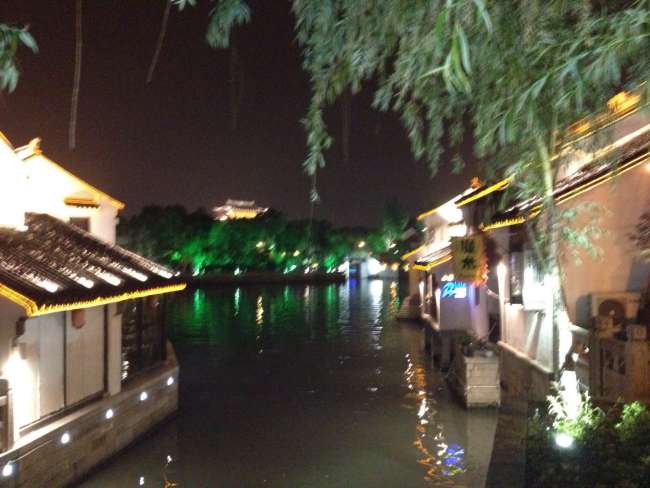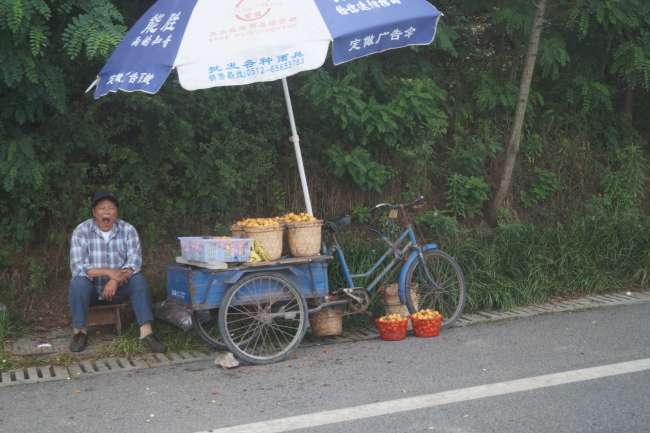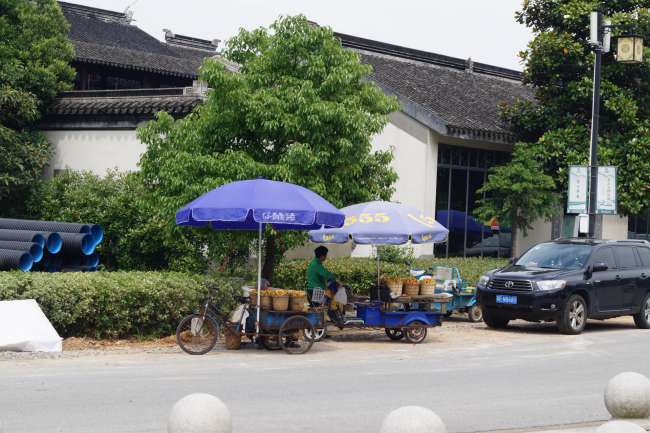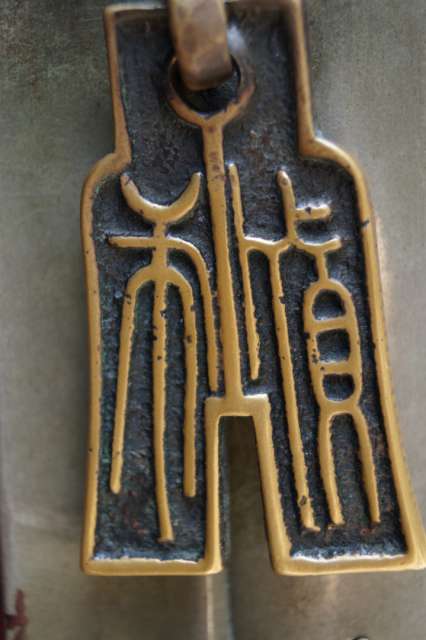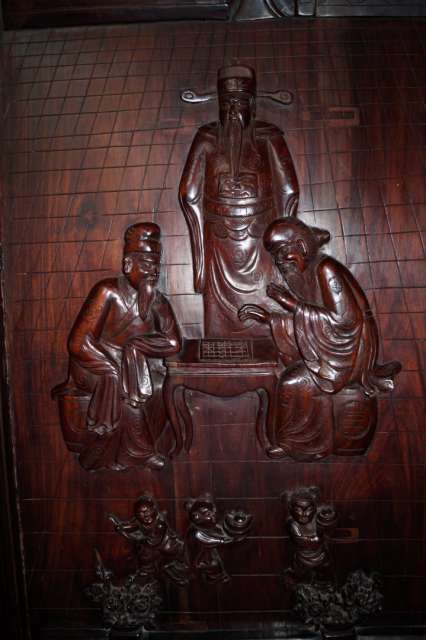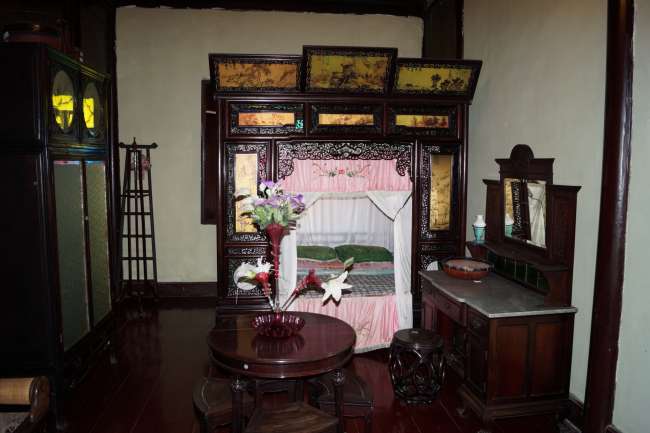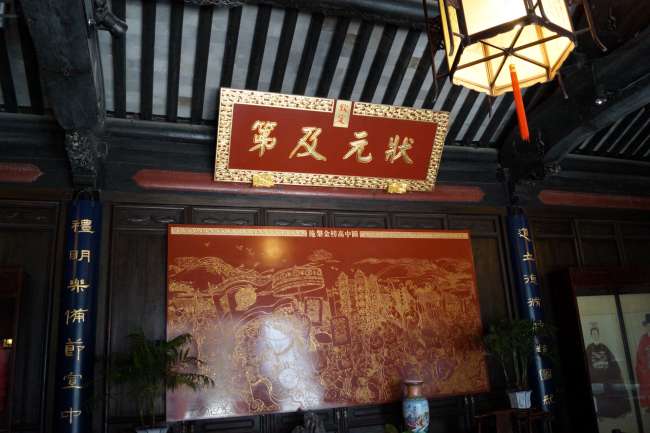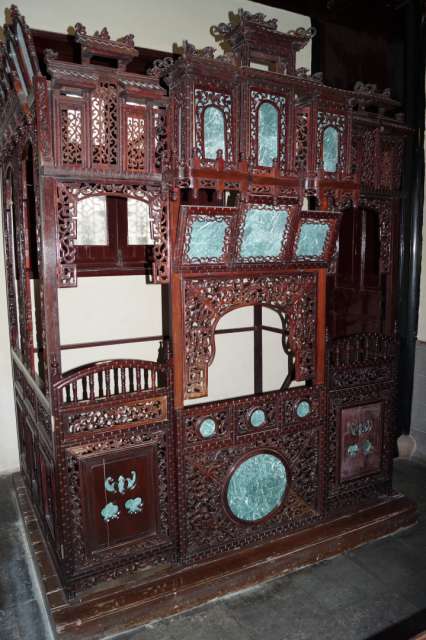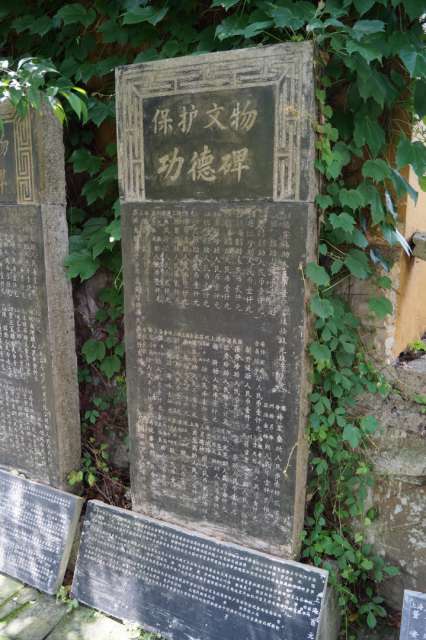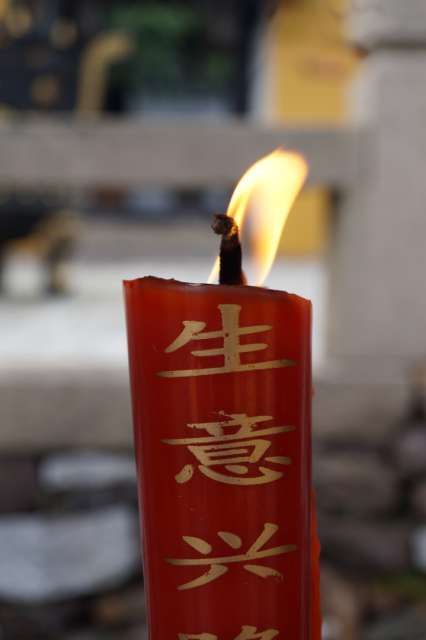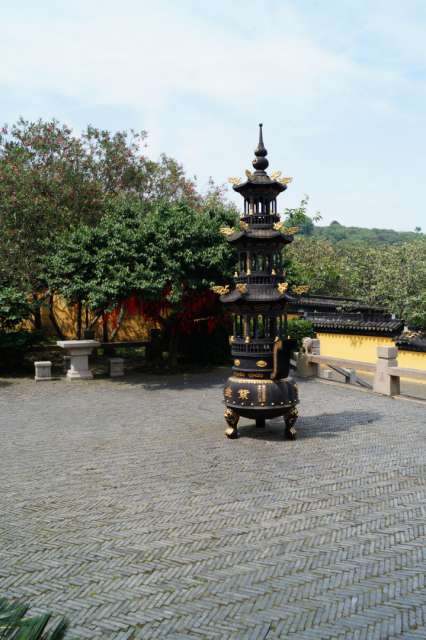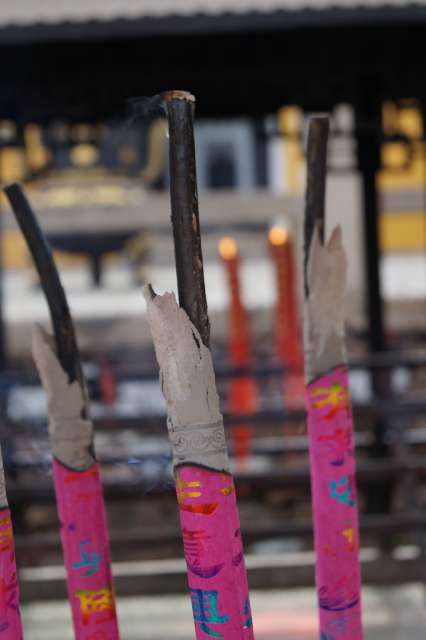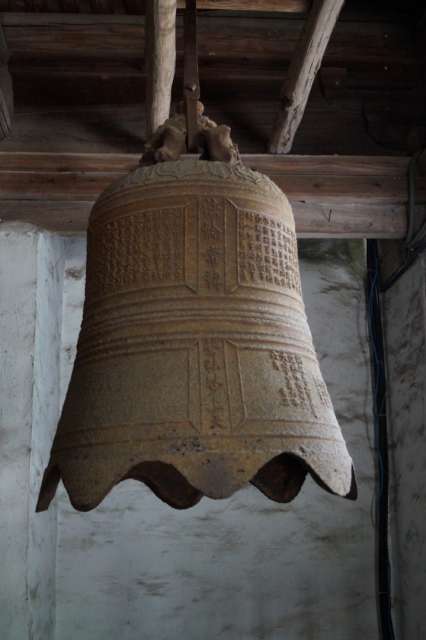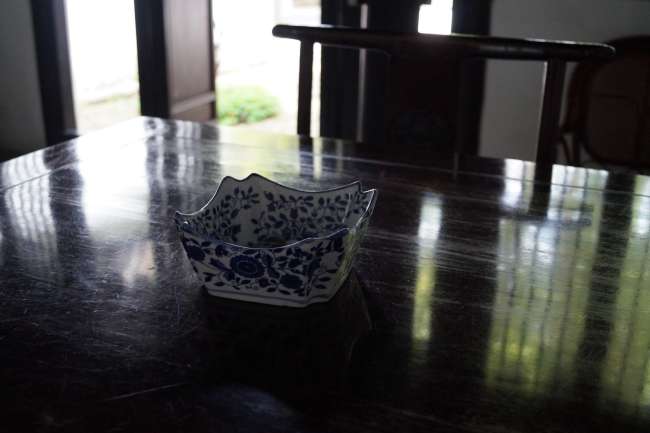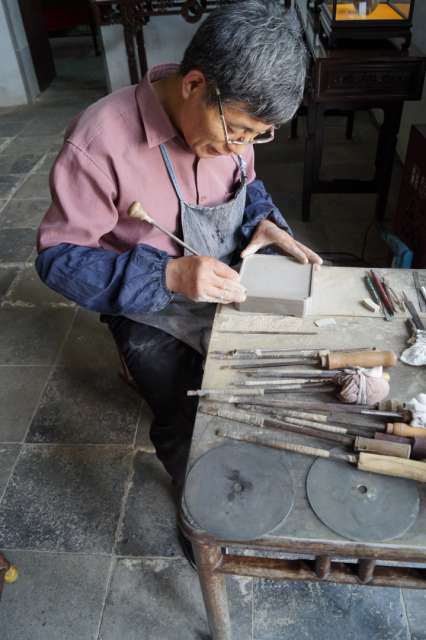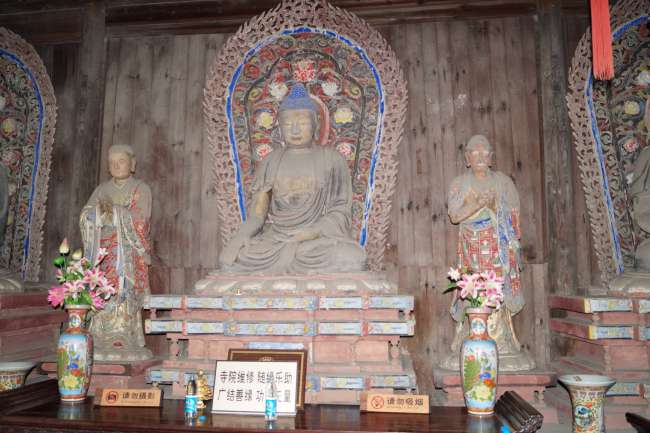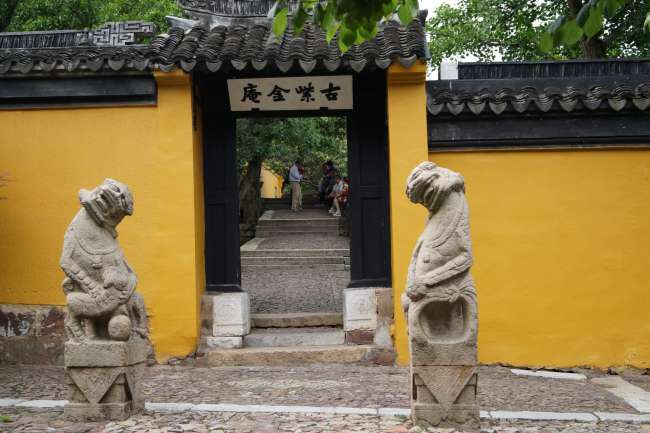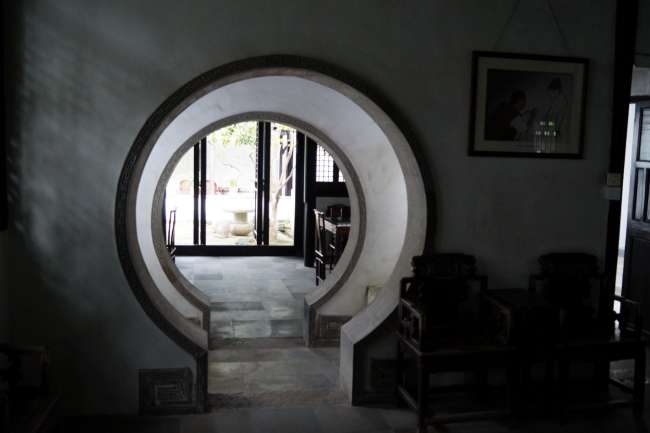Lake Taihu
प्रकाशित: 25.05.2017
समाचार पत्रिका के लिए सदस्यता लें
After the cooler day yesterday, it was noticeably warmer again today. A trip to Lake Taihu was on the agenda for today. Relatively unknown in Germany, it is about five times larger than Lake Constance and more than twice the size of the Ijsselmeer. It takes about three days to drive around it by car.
The areas around the lake are very fertile. The second most famous green tea in China is grown here, as well as many other agricultural products. Harvesting takes place all year round, and there is also fish farming, which provides additional income for the farmers. The farmers are accordingly wealthy, and the houses in the villages around the lake are large and very attractive.
The current season is for a fruit called Loquat (Japanese Medlar). These are very delicious yellow fruits that are offered and bought in incredible quantities here by the roadside. For kilometers on end, you drive past small carts that offer the fruits.

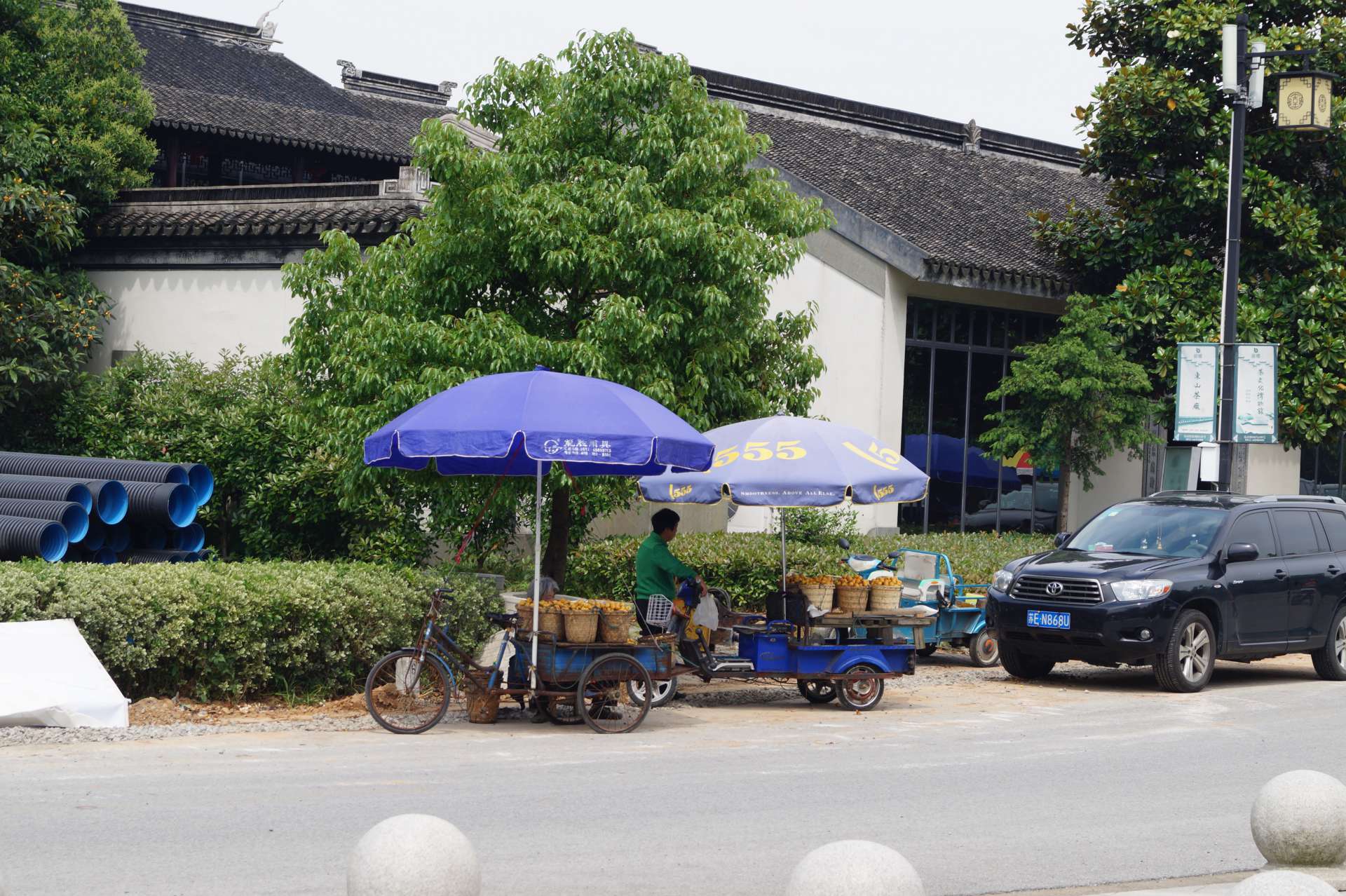
The first stop was the 'Carving Mansion'. This building was constructed about 300 years ago. It is an example of the carving art for which the region is famous. The building survived the Cultural Revolution unscathed because at that time Lake Taihu was very remote and the revolutionaries did not reach this far.
All wooden objects in the house are intricately carved. There must have been hundreds of artisans to equip the building like this.
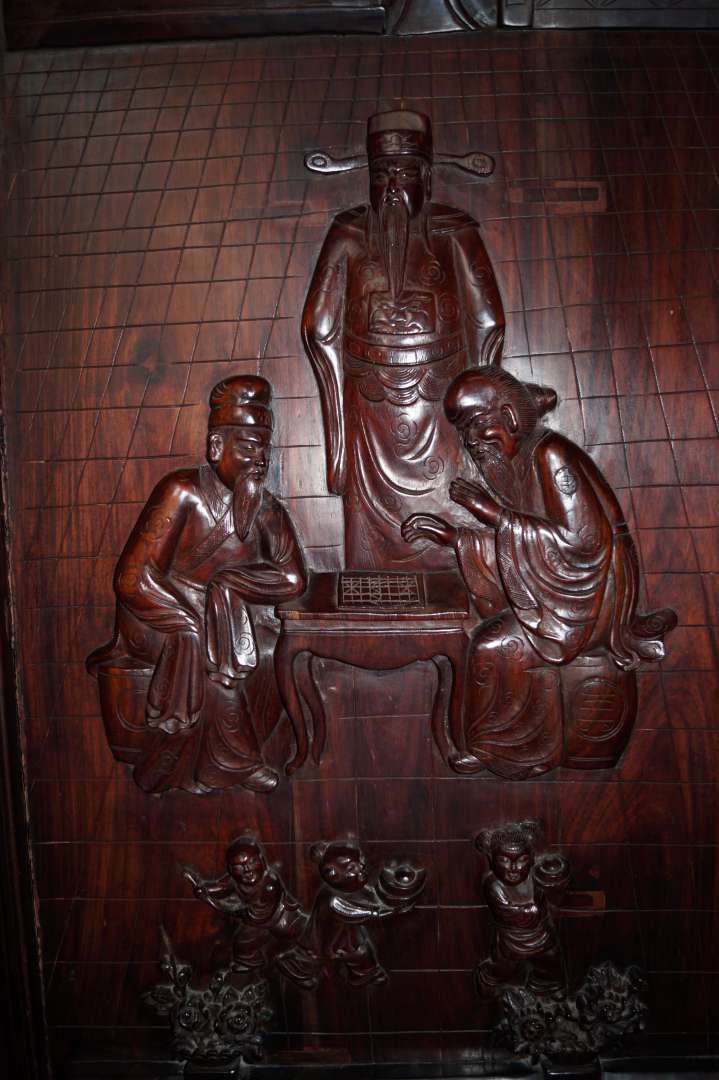

The first owner was a famous scholar. During the time of the emperor, there was an annual knowledge competition. The winner was highly honored and was allowed to advise the emperor. For this, he received a fortune. These scholars are still highly respected in China today.
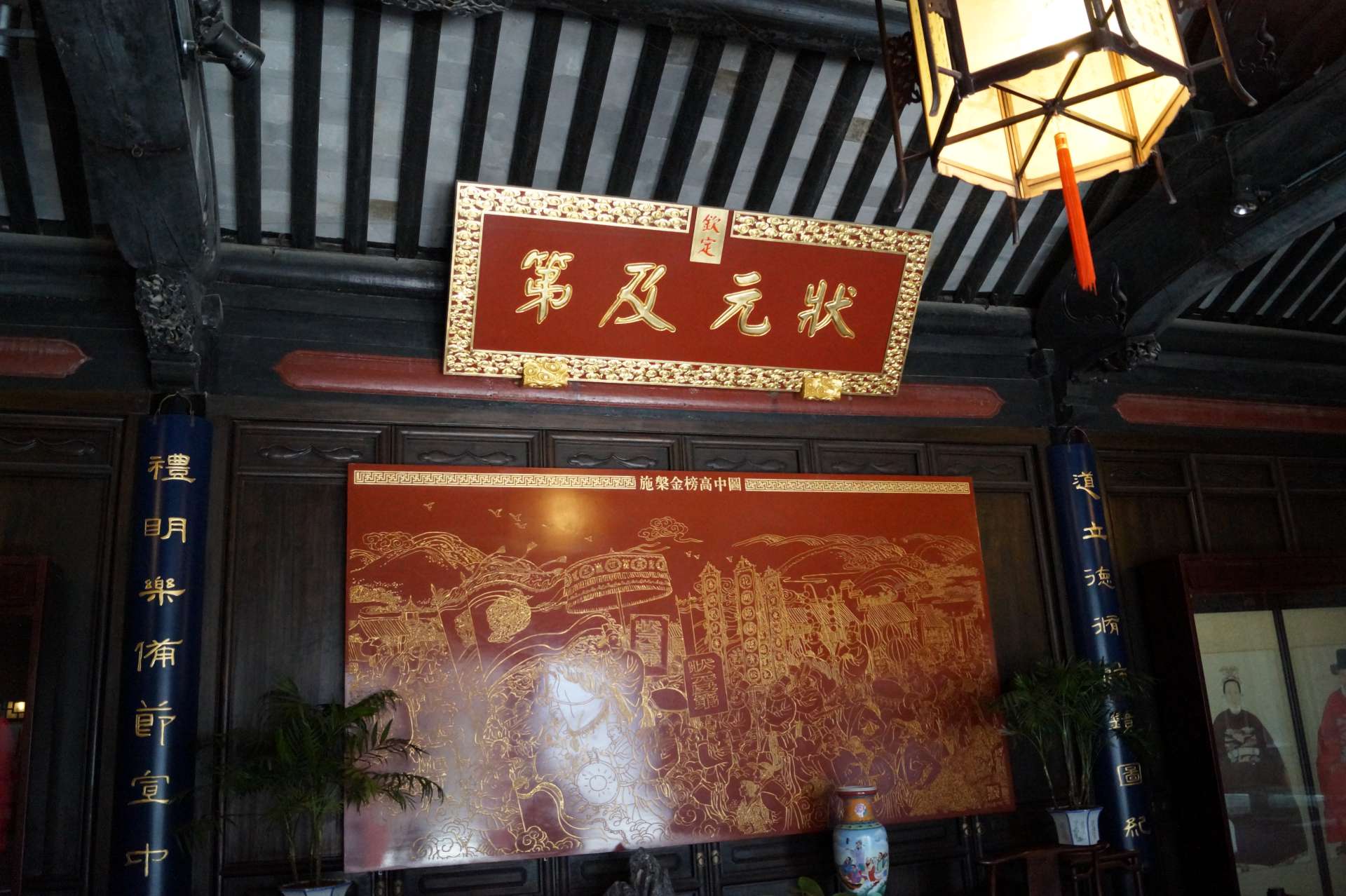
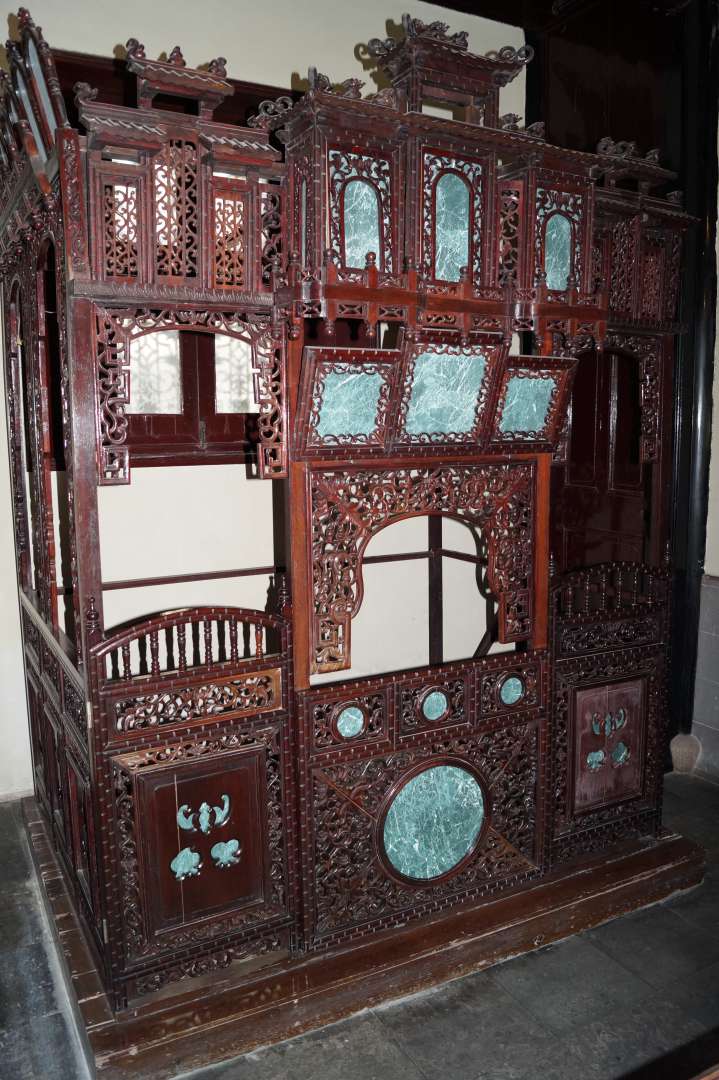
The next stop was lunch once again. This time, we had fresh fish. Initially, you could see the fish swimming in the pond before it met its fate for our lunch. It tasted accordingly delicious. Accompanying the fish, there were water chestnuts and other plants from the lake. Everything was very good.
Afterwards, we visited a Buddhist monastery, the 'Taiping Nunnery'. This was the most beautiful place in China up until then. The temple is surrounded by small mountains and is incredibly peaceful. There is a light breeze, making the temperature very pleasant, and the entire atmosphere is really great.


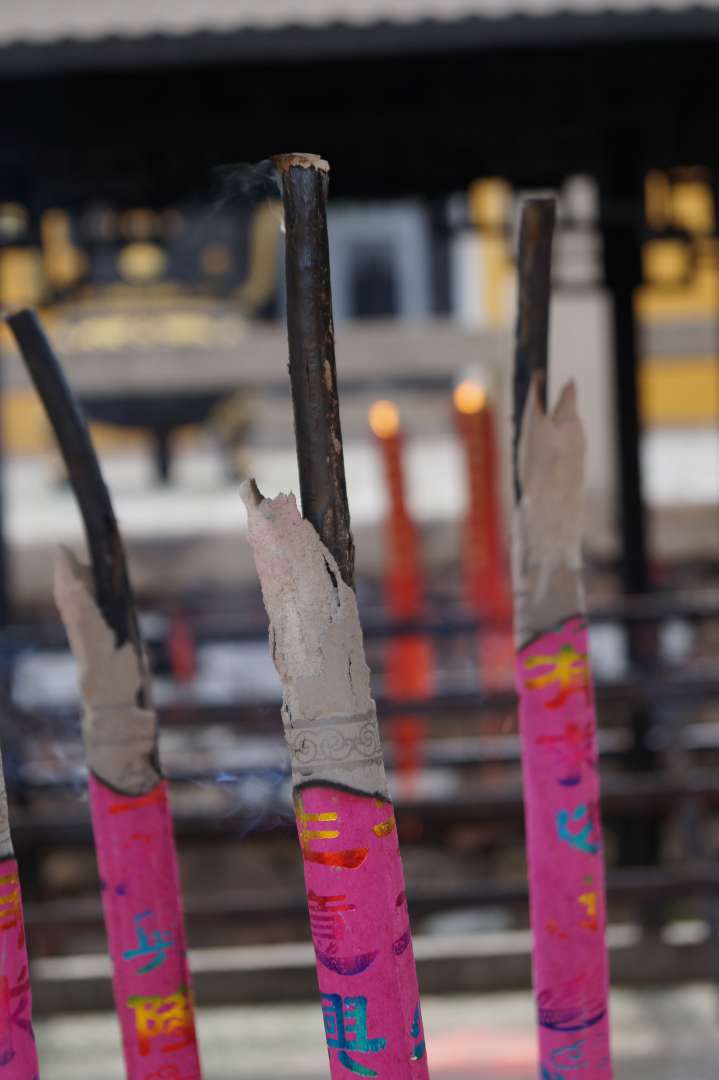
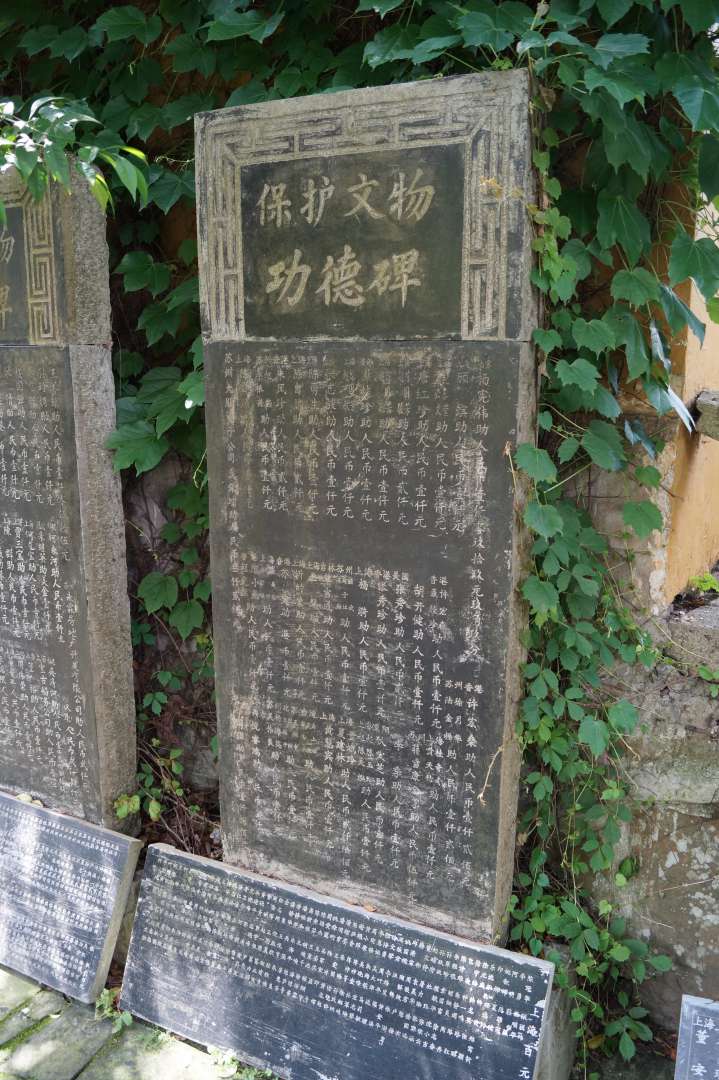
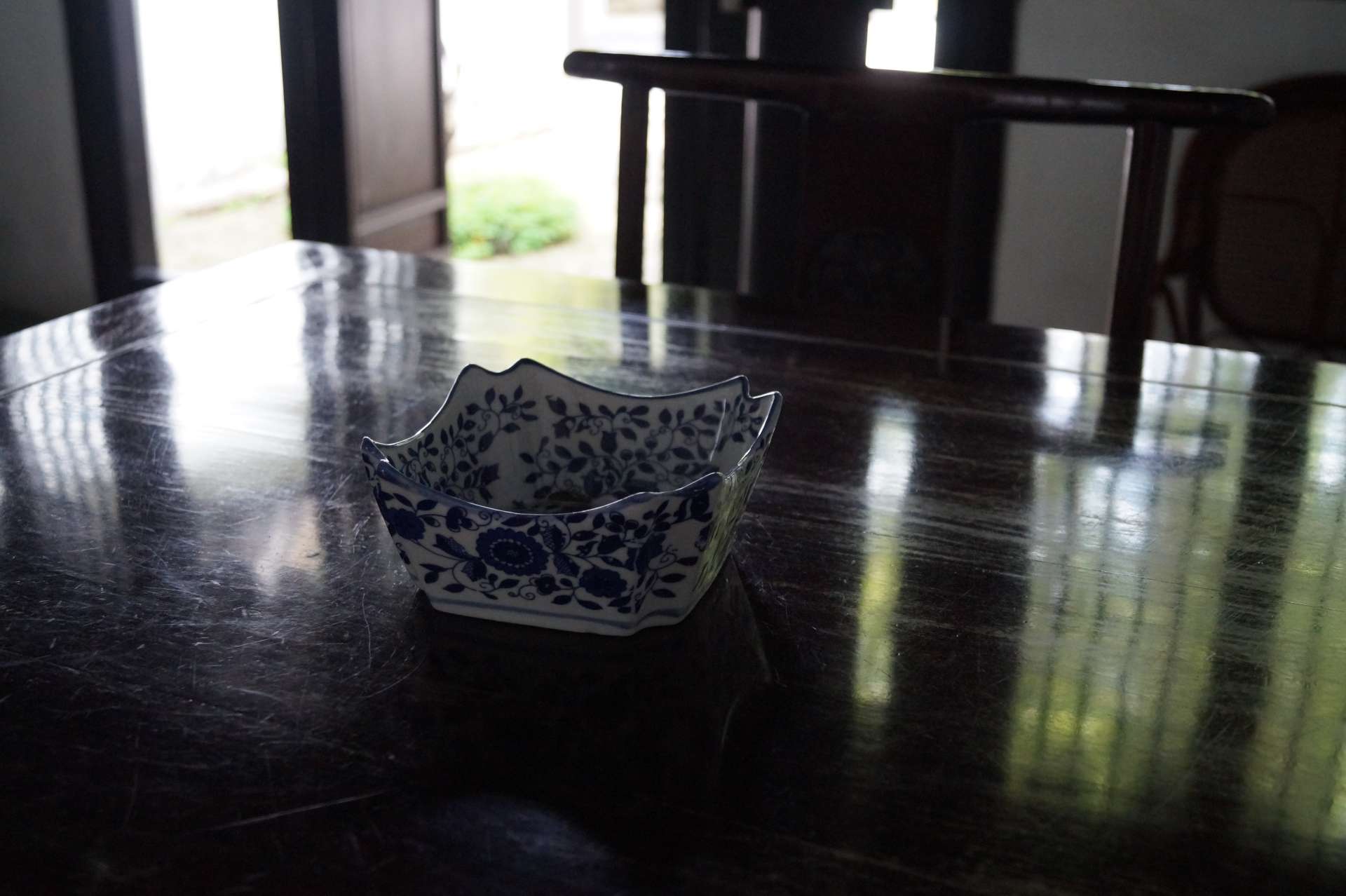
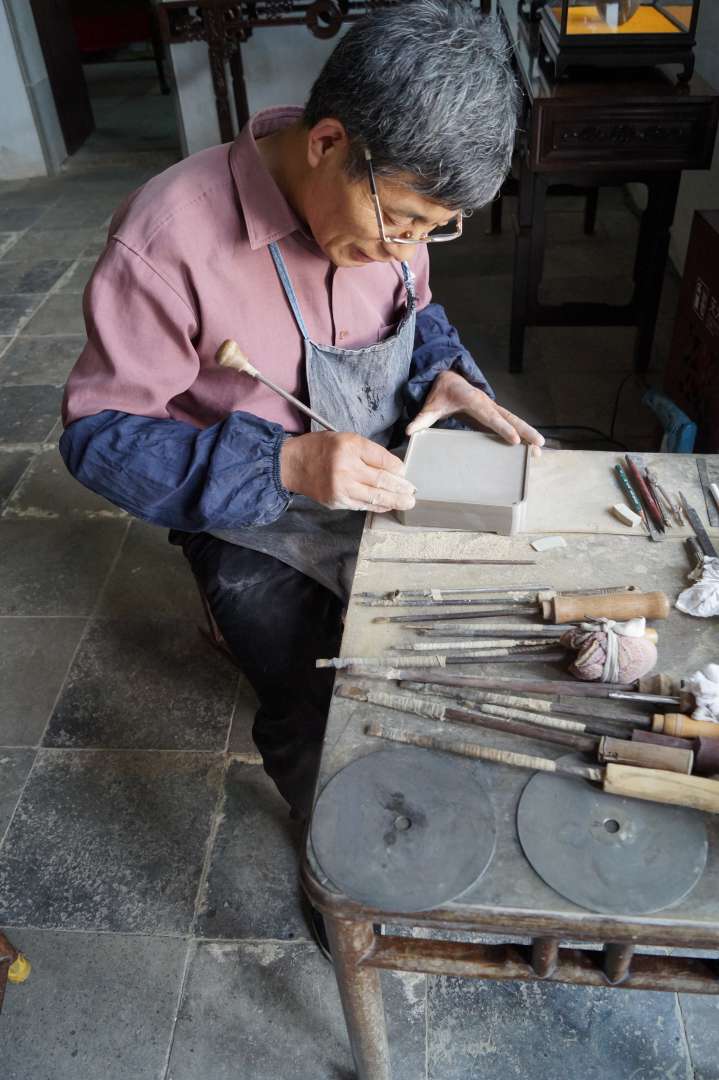



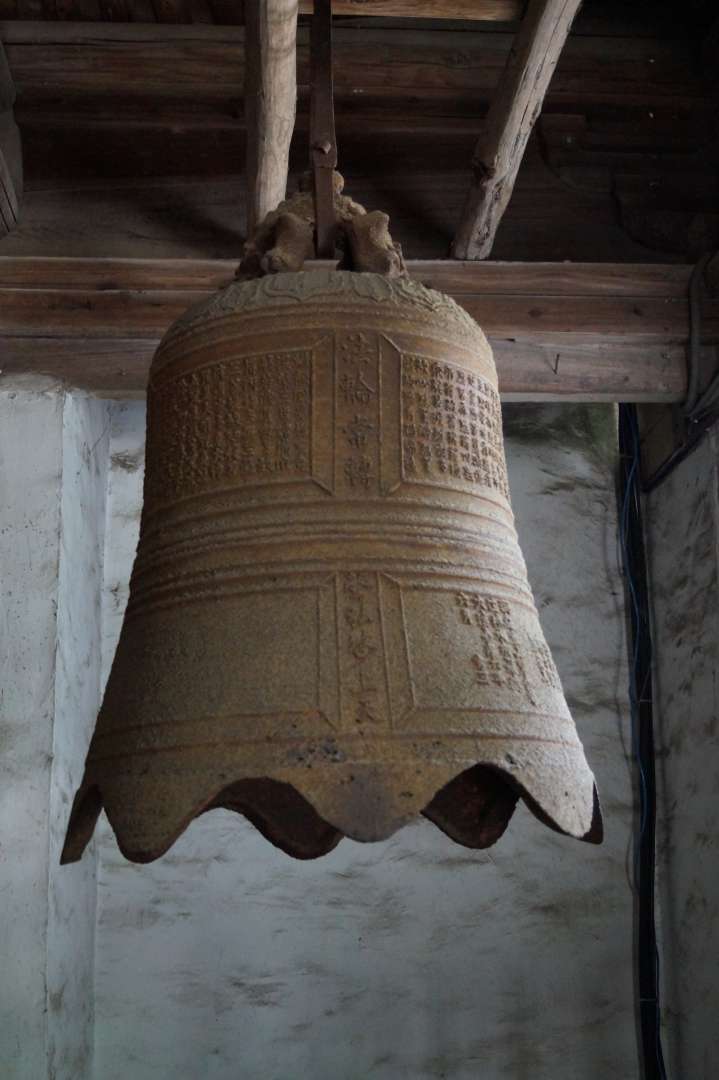
समाचार पत्रिका के लिए सदस्यता लें
उत्तर

